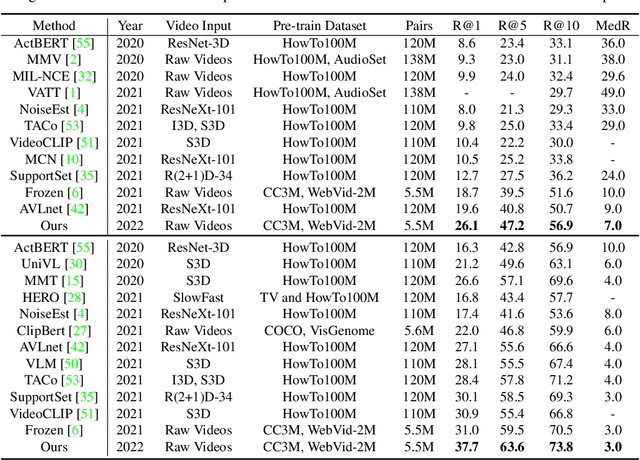MILES: Visual BERT Pre-training with Injected Language Semantics for Video-text Retrieval
Paper and Code
Apr 26, 2022



Dominant pre-training work for video-text retrieval mainly adopt the "dual-encoder" architectures to enable efficient retrieval, where two separate encoders are used to contrast global video and text representations, but ignore detailed local semantics. The recent success of image BERT pre-training with masked visual modeling that promotes the learning of local visual context, motivates a possible solution to address the above limitation. In this work, we for the first time investigate masked visual modeling in video-text pre-training with the "dual-encoder" architecture. We perform Masked visual modeling with Injected LanguagE Semantics (MILES) by employing an extra snapshot video encoder as an evolving "tokenizer" to produce reconstruction targets for masked video patch prediction. Given the corrupted video, the video encoder is trained to recover text-aligned features of the masked patches via reasoning with the visible regions along the spatial and temporal dimensions, which enhances the discriminativeness of local visual features and the fine-grained cross-modality alignment. Our method outperforms state-of-the-art methods for text-to-video retrieval on four datasets with both zero-shot and fine-tune evaluation protocols. Our approach also surpasses the baseline models significantly on zero-shot action recognition, which can be cast as video-to-text retrieval.
 Add to Chrome
Add to Chrome Add to Firefox
Add to Firefox Add to Edge
Add to Edge